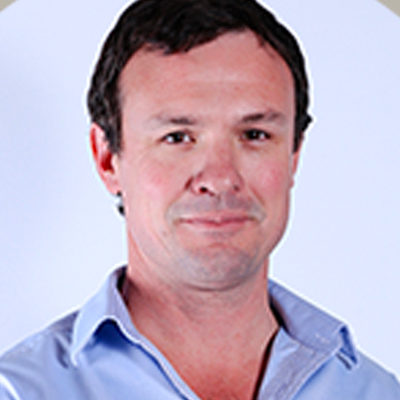
Josh McGregor
Regional Winner | Community & People category
Moree to Southern QLD, NSW and QLD
Josh McGregor is an adviser at McGregor Gourlay and a 2020 Growth Awards Regional Winner in the Community & People category. Read on to learn more about Josh.
What’s the one thing you have done in your career you are most proud of?
I am most proud of leading our business through 12-18 months of drought. It is hard for anyone not from here to comprehend what that was really like, because it wasn’t just 2019. The leadup year was not good either, so it was pretty desperate times. I went to a couple of events where you could start to see the fear in people’s eyes as they wondered if it was ever going to get better.
As a leader in the business, it was pretty relentless trying to keep staff morale up along with customers and your own family. It was a tough time but we got through it - we kept our team intact, and we were raring and ready to go when it finally rained this year. It wasn’t only a financial test, but a test personally with staff worried about their futures. It was an incredibly challenging year as one day would grind into another and a week into another without anything on the horizon, but you just had to get out of bed and keep going.
How will you share what you learn with others in the industry?
We have a policy within our company that if anyone takes part in a study tour or any kind of learning, they have to make a presentation to the rest of the staff on what that person has learned. What sort of trends were seen and how we can turn that into something useful for our busines and for our customers. We always insist on that and usually it brings new people into the business with new opportunities for our customers.
What do you see as your biggest opportunity in the next 12 months?
We had the philosophy last year, when things were so tough, we were not going to let a good crisis go to waste. We spent a lot of time coming up with different processes for our business and diversifying our product range to expand into things that we didn’t usually sell.
We improved our management structure and developed improved reporting that helped us get a better feel for what we have ahead of us, and what resources we need.
We feel there is a big opportunity in the next 12 months to put what we honed, to the test and we’ve already seen we are a better busines for it, and given a decent run, we will keep on improving. The biggest opportunity is really putting into practise all we learned during a really tough time.
What is the biggest barrier to achieving success in the next 12 months?
The biggest barrier is liquidity in agriculture in our part of the world. The seasons in 2018 and 2019 really wreaked havoc on agriculture as a whole. Livestock numbers were down by 70-80 per cent, grain growers had no meaningful income for two years, irrigators had no water allocations for two years and everything was held up by land values increasing. This year has been good, but we need another one like it, to really get enterprises back up on their feet. We are walking a fine line when it comes to liquidity in agriculture and it will take a while to repair.
What is the biggest challenge Australian Ag has to overcome in the next 10 years?
Undoubtedly it is social licence and its phenomenon around the world. Australia’s population is primarily metropolitan, primarily coastal and your average person in the street does not have a great understanding of, or can identify with agriculture. It is interesting though that agriculture is one of those industries that everyone seems to have an opinion about and everyone feels they have a stake in it. Often those opinions are fairly benevolent, and those people romance about life on the land, but that lack of understanding is increasingly being used by interest groups to achieve ideological outcomes. The whole thing is turbo-charged by social media.
We saw first-hand a lot of the fear and anger and misunderstanding about water management. I was abused on twitter even though I don’t own a single megalitre of water allocation.
Over the same time, we saw a global misinformation campaign around glyphosate. We’ve seen the effects of that with some councils banning the use of glyphosate and are now wanting to buy more dangerous alternatives from us. We can’t underestimate this – it’s not a phenomenon that is going to slow down at least until there are more people going hungry and that’s unlikely to happen anytime soon. It means people have the luxury of taking a keen interest in what we do, and I think it will shape the way we have to do things. It’s going to be a big challenge.